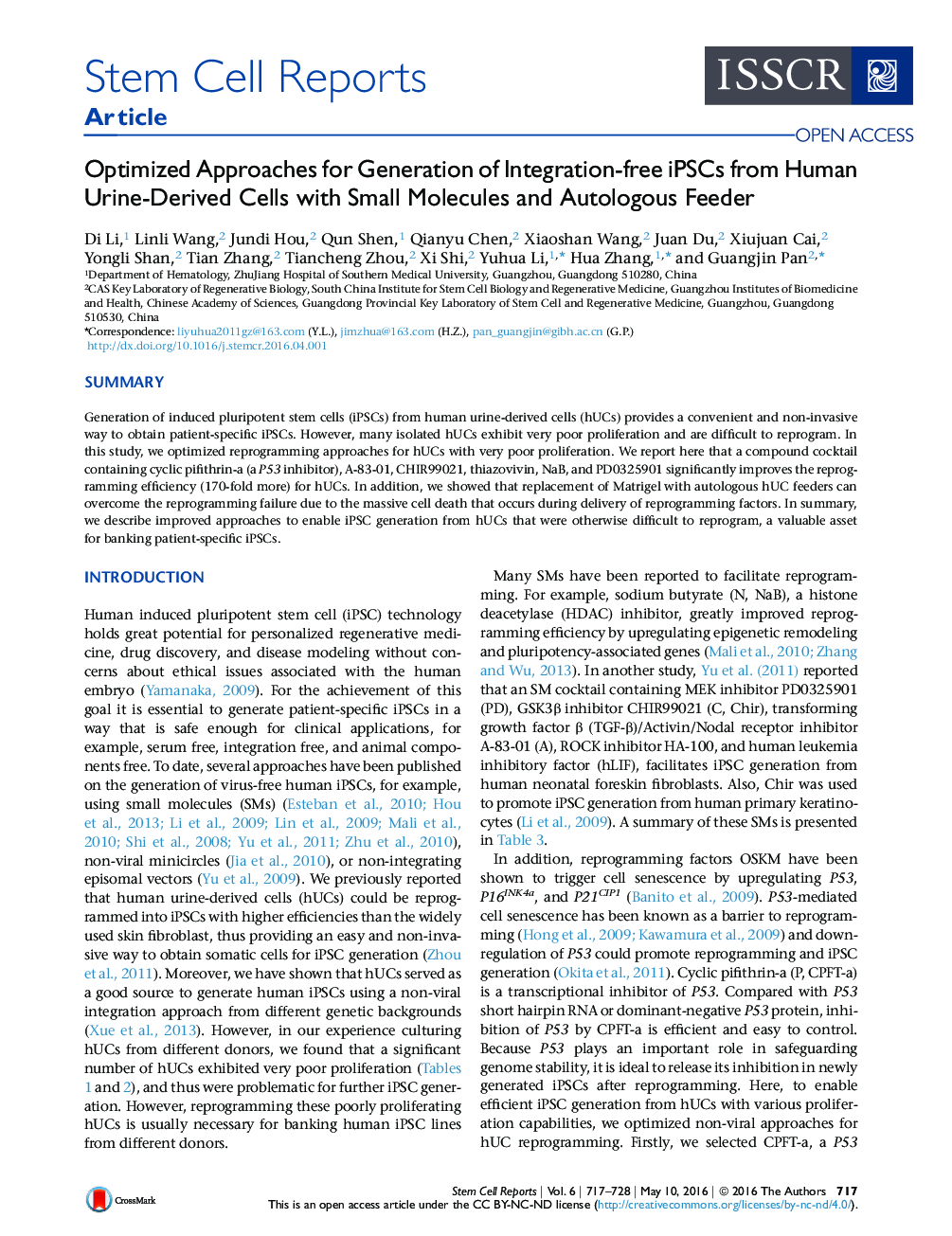| Article ID | Journal | Published Year | Pages | File Type |
|---|---|---|---|---|
| 2093230 | Stem Cell Reports | 2016 | 12 Pages |
•SM treatment significantly enhances the reprogramming of hUCs•Replacement of Matrigel with autologous hUCs as feeder facilitates reprogramming•Selection of cell-dependent reprogramming strategy is useful for banking iPSC lines
SummaryGeneration of induced pluripotent stem cells (iPSCs) from human urine-derived cells (hUCs) provides a convenient and non-invasive way to obtain patient-specific iPSCs. However, many isolated hUCs exhibit very poor proliferation and are difficult to reprogram. In this study, we optimized reprogramming approaches for hUCs with very poor proliferation. We report here that a compound cocktail containing cyclic pifithrin-a (a P53 inhibitor), A-83-01, CHIR99021, thiazovivin, NaB, and PD0325901 significantly improves the reprogramming efficiency (170-fold more) for hUCs. In addition, we showed that replacement of Matrigel with autologous hUC feeders can overcome the reprogramming failure due to the massive cell death that occurs during delivery of reprogramming factors. In summary, we describe improved approaches to enable iPSC generation from hUCs that were otherwise difficult to reprogram, a valuable asset for banking patient-specific iPSCs.
Graphical AbstractFigure optionsDownload full-size imageDownload as PowerPoint slide
